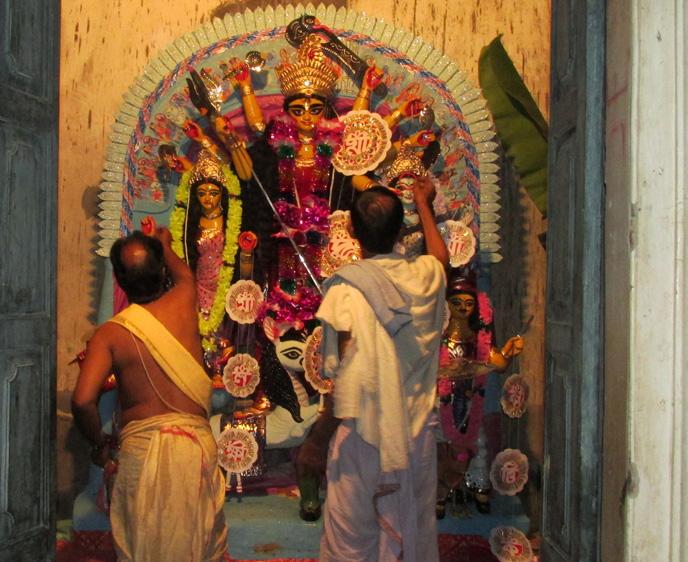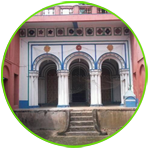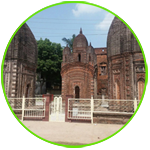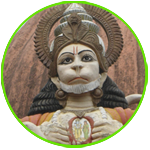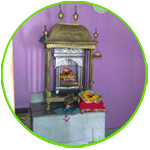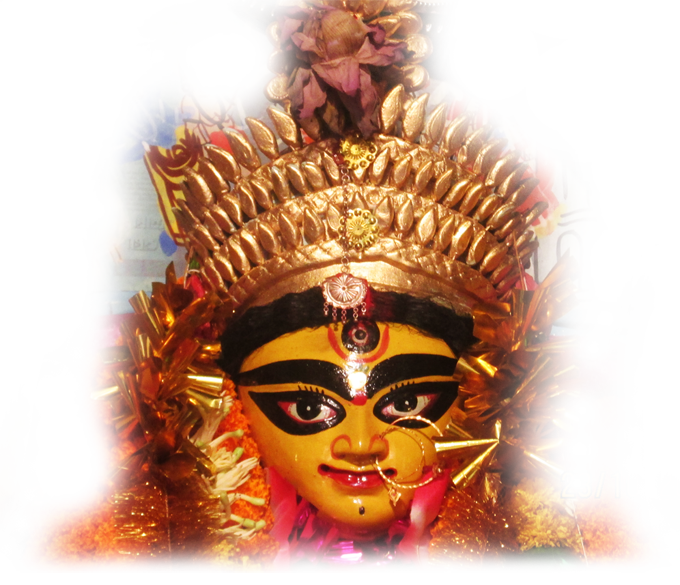Chandra Bansha SRIBATI
Bonedi Barir Sabeki Pujo
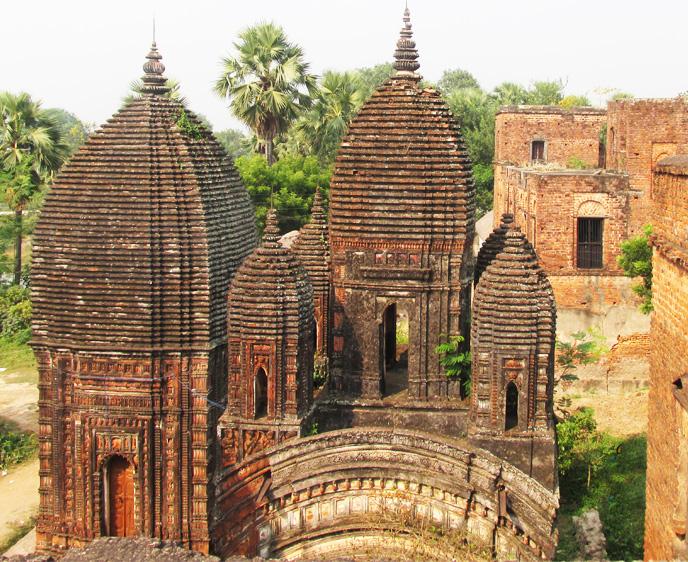
Terracotta Temple Complex
Sribati is home to one of the best preserved Bengali terracotta temple complexes from the nineteenth century. The complex consists of three temples housing Shiva-lingas named: Shri Viswesara (made of black stone), Shri Bholanath (made of white marble), and Shri Chandreswar (made of black stone).
Sribati is home to one of the best preserved Bengali terracotta temple complexes from the nineteenth century. The complex consists of three temples housing Shiva-lingas named: Shri Viswesara (made of black stone), Shri Bholanath (made of white marble), and Shri Chandreswar (made of black stone).
The oldest of the temples, dedicated to Shri Chandreswar, was built in 1802 by Smt. Bhabanicharan Chandra. It was built in the rekh-deul style of Eastern India with a single spire and a square base, and decorated with terracotta reliefs from Hindu Puranic mythology including the Dashavataras, Dasha-mahavidyas and Ramlila.
The middle temple and the third temple, dedicated to Shri Bholanath and Shri Viswesara, were built in 1836, by members of the local zamindari Chandra family, Shri Ramkanai Chandra and his wife, Annapurna Devi. The middle temple was built in the pancharatna style with five spires and decorated with terracotta interweaving Shaivite, Vaishnavite and Tantric motifs. The third temple was built in the rekh-deul style with a single spire and an octagonal base, and decorated with terracotta reliefs displaying common socio-cultural scenes of that time.
The Sribati Terracotta Temple Complex (S-WB-38) is a State Protected Monument under the Archaeological Survey of India's Kolkata circle.
Sribati is home to one of the best preserved Bengali terracotta temple complexes from the nineteenth century. The complex consists of three temples housing Shiva-lingas named: Shri Viswesara (made of black stone), Shri Bholanath (made of white marble), and Shri Chandreswar (made of black stone).
The oldest of the temples, dedicated to Shri Chandreswar, was built in 1802 by Smt. Bhabanicharan Chandra. It was built in the rekh-deul style of Eastern India with a single spire and a square base, and decorated with terracotta reliefs from Hindu Puranic mythology including the Dashavataras, Dasha-mahavidyas and Ramlila.
The middle temple and the third temple, dedicated to Shri Bholanath and Shri Viswesara, were built in 1836, by members of the local zamindari Chandra family, Shri Ramkanai Chandra and his wife, Annapurna Devi. The middle temple was built in the pancharatna style with five spires and decorated with terracotta interweaving Shaivite, Vaishnavite and Tantric motifs. The third temple was built in the rekh-deul style with a single spire and an octagonal base, and decorated with terracotta reliefs displaying common socio-cultural scenes of that time.
Near the terracotta temple complex are eighteenth and nineteenth-century zamindari mansions, in various states of preservation, displaying exquisite architectural motifs representative of the colonial era in Bengal: open courtyards, hanging balconies, surrounded by up to three floors of living spaces. Many of the houses also contain a very high-ceilinged puja mandap or large hall on one side, with designs etched into the walls. One of the houses still hosts an annual Durga Puja, that has been held continuously for over 300 years.
Near the terracotta temple complex are eighteenth and nineteenth-century zamindari mansions, in various states of preservation, displaying exquisite architectural motifs representative of the colonial era in Bengal: open courtyards, hanging balconies, surrounded by up to three floors of living spaces. Many of the houses also contain a very high-ceilinged puja mandap or large hall on one side, with designs etched into the walls. One of the houses still hosts an annual Durga Puja, that has been held continuously for over 300 years.
Another attraction is the Shri Shri Raghunath Jiu Mandir, established in 1705. The mandir or temple is dedicated to the kuladevata of the local zamindari Chandra family, Shri Raghunath Jiu, a form of Vishnu. The shaligram in this temple was one of the treasures looted by Maratha general, Bhaskar Pandit, in 1742 during the Maratha invasions of Bengal.
